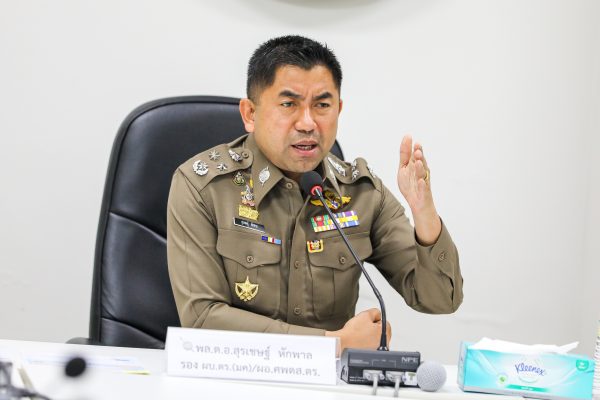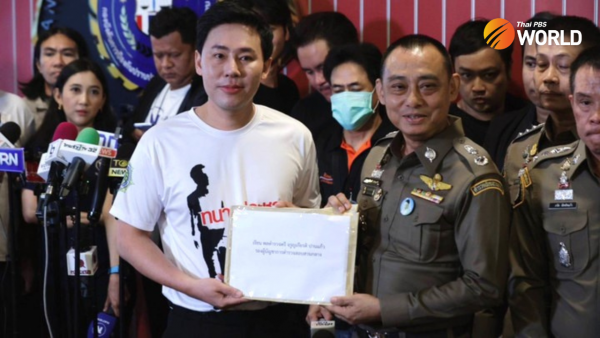Now, the hard part for Abhisit

I don’t like Thaksin Shinawatra, so which party should I vote for — Democrat or Palang Pracharat? It’s the answer to this question that will determine the future of Thailand’s oldest political party, which has re-elected Abhisit Vejjajiva as its leader.
The question will be extremely buzzing when the election draws near. It was a no brainer in the 2011 election, in which the Democrats won 159 seats, more than 100 seats fewer than their arch-rival Pheu Thai. With things getting a lot more complicated, many Democrats and their supporters are fearing the situation can become much worse.
A voter who does not like Thaksin will go to the polling booth this time torn between the Democrat, Palang Pracharat and, to probably a lesser degree, Action Coalition for Thailand (Ruam Palang Prachachat Thai) parties. They all are anti-Thaksin parties but the voter can only pick one. Two of the parties will be rejected, and one of them can be the camp led by Abhisit.
He will have to declare his stand very soon, as uncertainties can make his party’s prospects deteriorate pretty fast. He has announced that his party could never work with Pheu Thai, which supports Thaksin, but the Democrat leader has also been very critical of military-backed Prime Minister Prayut Chan-o-cha. In fact, his frequent and heavy criticism of Prayut prompted speculation that a leading candidate vying for the Democrat Party’s helm, Warong Dechgitvigrom, was “planted” by the military to ensure the party’s support for Prayut as the post-election prime minister.
It’s damn-if-you-do-damn-if-you-don’t for Abhisit. Whatever he decides to do next will generate unpleasant consequences. Rejecting Prayut can turn a lot of voters toward Palang Pracharat or Action Coalition for Thailand. Supporting him can make Abhisit look bad, particularly abroad which is his usual comfort zone.
Staying ambiguous can encourage anti-Thaksin voters to “play safe” and cast their ballots for a “surer” option. Proclaiming his readiness to be in the opposition and let Pheu Thai and Prayut fight it out for control can generate similarly bad effects in terms of seats gained.
The Democrats won more than 11 million “party list” votes in the 2011 election. A sizeable portion of that is believed to be “temporary fans”, albeit those who were not ardent Democrat supporters but did not want the Shinawatras to retake power. The voters saw the oldest party as their only hope, which is not the case in the upcoming election.
Worse news for Abhisit is that the next election is a short-term problem, albeit a big one. The main long-term problem has to do with why the party has lost regularly to Thaksin’s political camp, despite endless scandals associated with the latter. Abhisit, backed by beloved former prime minister and ex-Democrat leader Chuan Leekpai, blamed the “power of money” of the party’s rivals, but critics see another problem.
According to the critics, Abhisit needs to cut down on his academic, preaching style and do more on pushing tangible policies, particularly ones with great social or economic implications like those on education and healthcare. Such policies can be controversial, but a great political leader can thrive on turning controversial ideas into policies.
His problems with Tavorn Sennium, a pro-Warong Democrat during the primary, could stem from the latter’s oversight, or they are signs of a difficult future where Abhisit faces simmering dissent within the party. Tavorn allowed Suthep Thaugsuban, who defected from the Democrat Party a few years ago to lead massive street protests against the Yingluck government, to use his (Tavorn’s) house in Songkhala for membership registration activities of Suthep’s Action Coalition for Thailand Party.
Tavorn has apologized and could face some disciplinary action for causing “confusion” and possibly violating current state rules. Abhisit certainly wants the problems to die down, as clashing with powerful southern figures of the party will not do him any good. The Democrat’s fan base is largely in the South, to begin with.
Despite all the problems, the Democrat “primary” , which looked like a tough challenge for Abhisit, seems like a light exercise when he thinks about it now. The hard part, it’s so clear at the moment, is not retaining the Democrat leadership, but what needs to be done after retaining it.






